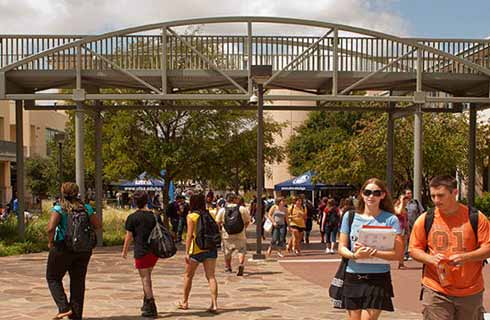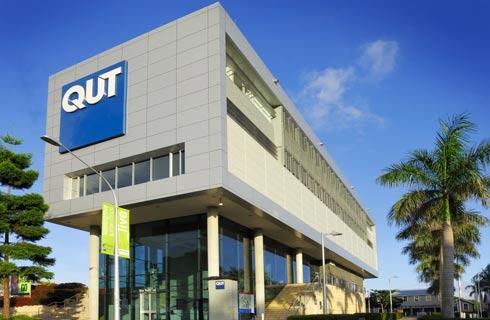国际学生入学条件
A level offer – A*A*A-A*AA.Suitable performance in the University Admission Tests TMUA or MAT or 2 in any STEP will lead to the lower A*AA offer (A*A in Mathematics and Further Mathematics, either way round plus A in any other A level or equivalent).BTEC Level 3 National Extended Diploma / OCR Cambridge Technical Extended Diploma – D*D*D – D*DD and A level requirements as above.IB Diploma score – 38 with 776 including a 7 in Mathematics (Analysis & Approaches) or 766 in higher level subjects, including a 7 in Mathematics (Analysis & Approaches)
展开
IDP—雅思考试联合主办方

雅思考试总分
6.5
- 雅思总分:6.5
- 托福网考总分:80
- 托福笔试总分:
- 其他语言考试:Pearson Academic PTE - 62 (with no less than 59 in each Communicative Skill)
Cambridge C2 Proficiency or C1 Advanced - 176 with a minimum of 169 per component
CRICOS代码: G111
申请截止日期: 请与IDP联系 以获取详细信息。
课程简介
Combining the study of statistical principles with real-world application, this degree prepares you for a career in an increasingly data-driven world.,Mathematics and Statistics is a fascinating mix of subjects that will suit those with enquiring minds, strong IT skills and an interest in identifying and analysing patterns in data. The BSc combines a strong mathematical grounding with the latest developments in statistics and machine learning to provide the foundation you’ll need to step into a data-driven workplace. When you choose maths you’ll be taught by a team of mathematicians and statisticians with a wealth of experience in industry and research. The Department is home to a number of research groups with specialisms in both pure and applied mathematics. With many of the teaching team actively involved in research there are plenty of opportunities to link learning to the latest research in distinctive and creative ways. You will be based in a brand-new facility, purpose-built to meet the learning, teaching and study needs of students from the Department. You can also apply to add a placement year or a year abroad to your degree, increasing the course from three years to four.Year 1 begins with a broad-based introduction to pure and applied mathematics, statistics and probability and provides a sound foundation for in-depth study in subsequent years. As you move into the second year the focus on statistics increases. During the final year you complete either the individual project in which you tackle a theoretical area or an applied problem in depth. Alternatively, the internship project is a statistics and machine learning piece of work based on a third-party problem. Both projects can be carried out in collaboration with external organisations to add valuable real-world context to your degree.Course structureYear 1 modulesCore modules:Analysis aims to provide an understanding of real and complex number systems, and to develop rigorously the calculus of functions of a single variable from basic principles.Calculus builds on ideas of differentiation and integration in A level mathematics, beginning with functions of a single variable and moving on to functions of several variables. Topics include methods of solving ordinary and partial differential equations, and an introduction to Fourier Series and Fourier transforms.Linear Algebra presents mathematical ideas, techniques in linear algebra and develops geometric intuition and familiarity with vector methods in preparation for more demanding material later in the course.Dynamics develops an understanding of elementary classical Newtonian dynamics as well as an ability to formulate and solve basic problems in dynamics.Probability introduces mathematics ideas on probability in preparation for more specialised material later in the course. The module presents a mathematical subject of key importance to the real-world (applied) that is based on rigorous mathematical foundations (pure).Programming is taught via lectures and practical sessions that introduce basic principles and competence in computer programming. You will also study control structures; floating point arithmetic; and lists, strings and introduction to objects.Statistics introduces frequentist and Bayesian statistics and demonstrates the relevance of these principles and procedures to real problems. This module lays the foundations for all subsequent study of statistics.Year 2 modulesCore modules:Analysis in Many Variables provides an understanding of calculus in more than one dimension, together with an understanding of, and facility with, the methods of vector calculus. It also explores the application of these ideas to a range of forms of integration and to solutions of a range of classical partial differential equations.Statistical Inference introduces the main concepts underlying statistical inference and methods.
展开







 预科
预科 奖学金
奖学金 实习机会
实习机会 在校学习
在校学习 跨境学习
跨境学习 校园授课-线上开始
校园授课-线上开始 在线/远程学习
在线/远程学习














 伍伦贡大学
伍伦贡大学

 伍伦贡大学
伍伦贡大学

 澳大利亚国立大学
澳大利亚国立大学

 南澳大学
南澳大学

 悉尼新南威尔士大学
悉尼新南威尔士大学

 科廷大学
科廷大学









 英国
英国